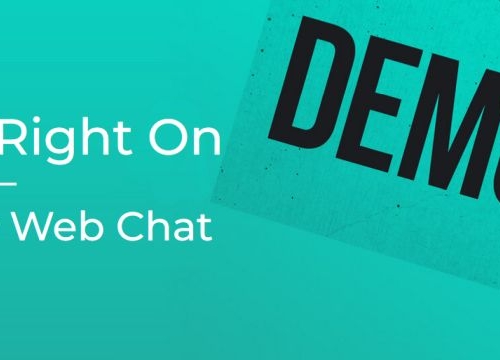Right On: Democracy and Rule of Law in Crisis?
Right On


Geneva Internet Platform
The outbreak of the Coronavirus is placing a greater strain on democracy and the rule of law.
While the question of democracy and the rule of law in crisis has been around for quite some time, the misuse of personal data, the surge in fake news, extensive surveillance, and human right violations amid COVID-19, have all further undermined faith in the democratic process and the idea of equality before the law. In a similar manner, the recent adoptions of emergency laws and decrees worldwide in the face of an unseen threat have exacerbated doubts in the promptness and robustness of political responses in the world’s democracies.
Additionally, existing inequalities resulting from unequal socio-economic opportunities have excluded millions from democratic decision-making and consequently added an additional layer of complexity.
Our Wednesday ‘Right On’ web chat will address ways to tackle the global health crisis without undermining democratic practices and will reflect on the consequence of COVID-19 on the future of democracy and the rule of law.
Moderators
- Felix Kirchmeier, Manager of Policy Studies, Geneva Academy and Executive Director, Geneva Human Rights Platform.
- Marc Limon, Executive Director, Universal Rights Group
Speakers
- Annika Ben David, Sweden’s Ambassador at large for Human Rights, Democracy and the Rule of Law
- Ilze Brands Kehris, Assistant Secretary-General for Human Rights and Head, United Nations Human Rights Office in New York
- Yuval Shany, Hersch Lauterpacht Chair in International Law at the Law Faculty of the Hebrew University of Jerusalem, Lecturer at the Geneva Academy and Member of the UN Human Rights Committee
- Annika Silva-Leander, Head, Democracy Assessment and Political Analysis (DAPA) Unit, International IDEA
- Marcin Walecki, Head of Democratization Department of the OSCE Office for Democratic Institutions and Human Rights
Registration
To join the discussion, you need to register here.
‘Right On’: The Wednesday Web Chat
‘Right On’ is a new digital initiative – co-organized by the Geneva Academy, the Geneva Human Rights Platform, the Geneva Internet Platform, the DiploFoundation, the Universal Right Group, the Human Rights Centre at the University of Essex, the Human Rights, Big Data and Technology Project, UNFPA, the World Jewish Congress, as well as the Permanent Missions of Denmark, Norway and the Netherlands to the United Nations in Geneva – that will keep the human rights dialogue going during these COVID-19 times.
Every Wednesday at 15:00, experts and practitioners will discuss key human rights issues related to the current health crisis.
Video
Right On: Democracy and Rule of Law in Crisis?
In this third event of the ‘Right On’ digital initiative, panelists discussed ways to tackle the global health crisis without undermining democratic practices and reflect on the consequence of COVID-19 on the future of democracy and the rule of law.











